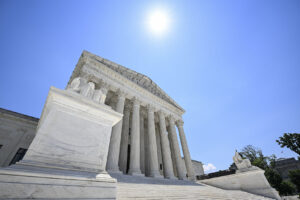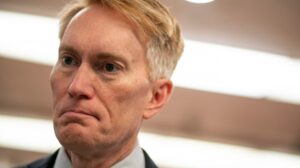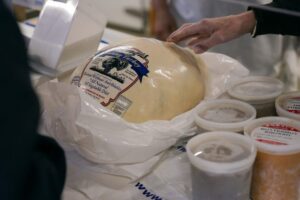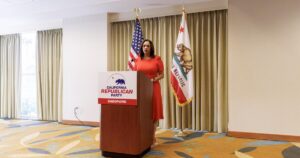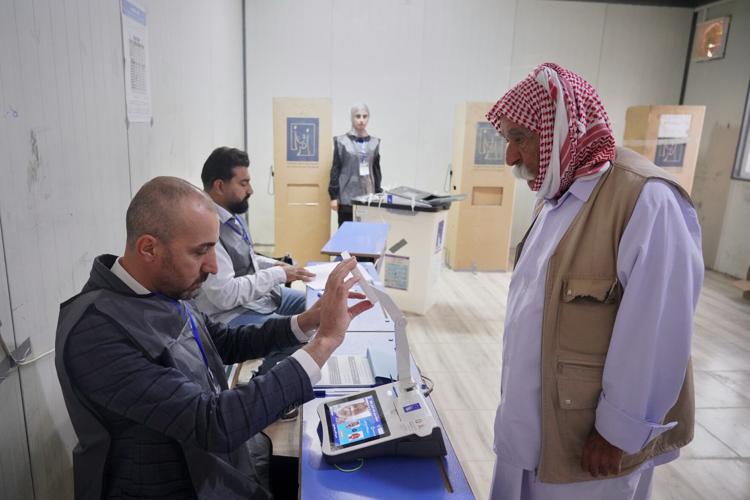
Members of the Iraqi security forces and displaced individuals, including those from the Yazidi community, participated in early voting on Sunday, March 3, 2024, ahead of the parliamentary elections scheduled for March 5, 2024. This election is crucial for determining whether Iraqi Prime Minister Mohammed Shia al-Sudani will secure a second term. The political landscape is complicated by ongoing tensions, particularly between Iran and Israel, as Iraq navigates its relationships with both nations.
Approximately 1.3 million military and security personnel, along with around 26,000 displaced individuals, are eligible to vote. A total of 7,744 candidates are competing in this election, primarily from sectarian-aligned parties. Polling stations in areas like Dohuk, located in the semi-autonomous northern Iraqi Kurdish region, have been established to facilitate the voting process.
For many Yazidis, who fled their homes over a decade ago due to brutal attacks by the Islamic State group, this election holds particular significance. Many of them voted at a camp near Dohuk, where they have been residing due to ongoing political disputes and inadequate infrastructure that have hindered their return home.
A polling station at a local school in Dohuk saw limited activity until after 09:00, when more voters arrived, some carrying worn identification cards and others assisting elderly relatives. Inside, a mix of monitors from various parties and candidates observed the proceedings closely.
The Yazidi community continues to grapple with the aftermath of the violence that unfolded during the Islamic State’s campaign, particularly in the Sinjar district of Nineveh province. Thousands of Yazidis were killed or enslaved during this period. Since the defeat of IS, some Yazidis have begun to return to Sinjar, but many remain disillusioned about the prospects for rebuilding their homes.
Khedhir Qassim, a displaced Yazidi from Sinjar, expressed frustration over the lack of change since the violence. “Eleven years passed and the situation is the same. We want them to support us and rebuild our areas that are ruined due to their political dispute,” he said.
Another displaced Yazidi, Edris Zozani, noted his decision to vote for the Kurdish Democratic Party (KDP), one of Iraq’s two main Kurdish parties. “If we have independent Yazidi candidates, they wouldn’t be able to represent us effectively. But if they go to parliament as part of strong lists, like the KDP, they would be in a better position to support the Yazidi community,” he explained.
In the capital, Baghdad, security forces, including soldiers and police, also participated in early voting, alongside members of the Popular Mobilization Forces (PMF). This coalition, primarily composed of Shiite, Iran-backed militias, was formally integrated into Iraq’s military in 2016 but continues to operate with a significant degree of autonomy. The PMF’s future remains a contentious issue, particularly with ongoing tensions between Baghdad and Washington regarding the presence of Iranian-backed militias in Iraq.
One militiaman, who wished to remain anonymous due to restrictions on speaking to the press, indicated he voted for a list that supports the PMF but did not disclose specific details. The parliament is currently considering legislation that would solidify the relationship between the military and the PMF, a proposal that has drawn objections from the United States.
As Iraq approaches the election date, the mixed sentiments among voters reflect the complexities of the political landscape and the enduring struggles of communities like the Yazidis. The outcome of this election could significantly influence the direction of Iraqi governance and the future of its diverse populations.
